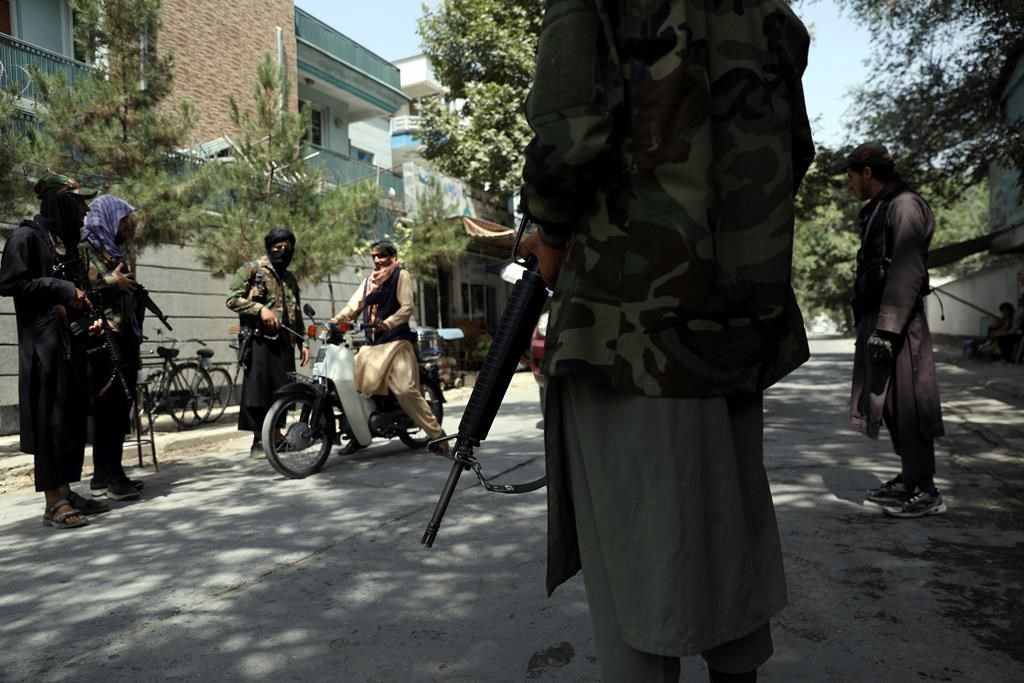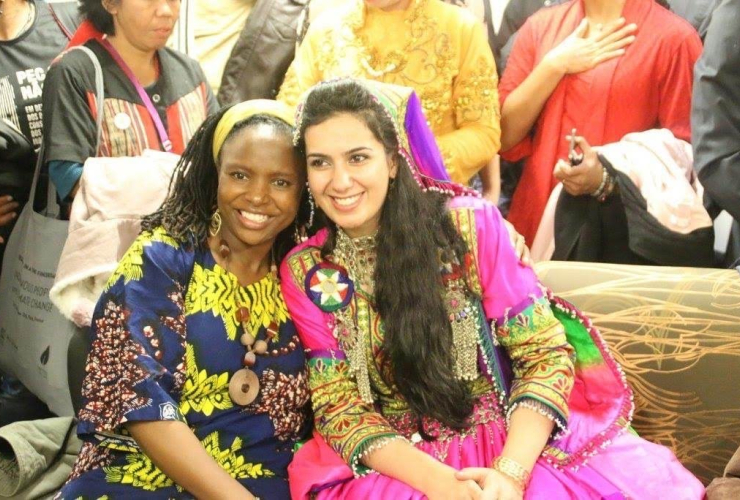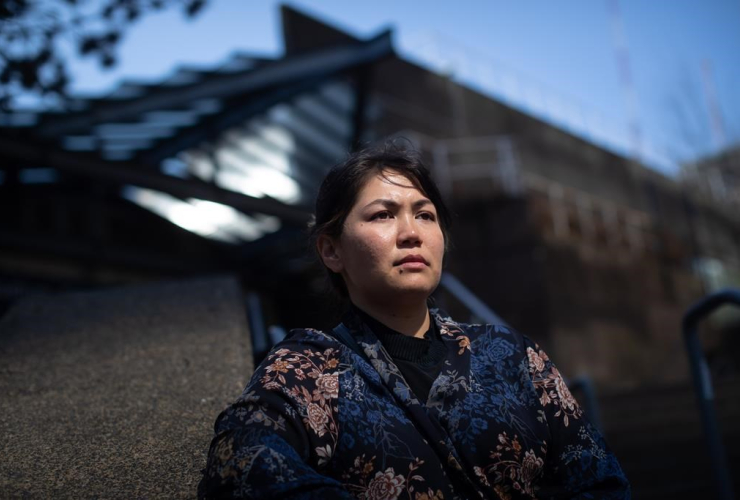Dozens of female Afghan students have escaped the Taliban with the help of a Toronto-based charity and are heading to Saskatoon after a daring land journey lasting weeks.
Nearly 100 girls have managed to flee to Pakistan with their families after failing to get out of Kabul before the airport was closed. A number of Afghan female dancers were also part of the group.
They will head to Saskatoon within the next three weeks, Canada's immigration minister confirmed on Sunday.
The group of about 200 Afghans spent weeks trying to find a safe route to evade the Taliban, which recently reclaimed political control of the country and opposes the education of women.
On Friday, the Taliban decreed that male high-school students should return to the classroom, but not girls.
Prince’s Trust Canada, which is a charity set up by Prince Charles that supports youth and veterans programs and was involved in co-ordinating the escape, said it was relieved the group had finally made it to safety.
“They are a highly inspiring community and now they have an opportunity to grow and continue their education in Canada,” said charity chairman Mark Fell.
With support from the youth charity, the girls tried to escape by air after the Taliban seized control of the country in a lightning offensive last month. But conditions proved too perilous to allow the girls and their relatives to reach the Kabul airport.
They then tried to make it to another Afghan airport and considered fleeing over the border with Uzbekistan before ultimately escaping to Pakistan through a route which cannot be disclosed for security reasons.
The federal government confirmed on Sunday that it plans to resettle the female students and their families in Saskatoon. They are expected to travel there within two or three weeks, and will quarantine after their arrival in Canada in accordance with federal measures to limit the spread of COVID-19.
Around 35 Afghans have already arrived in the Saskatchewan city, which is home to a small community of refugees from that country.
Fell said the Prince's Trust wholeheartedly supports the choice of city the group will soon call home.
“The Canadian government selected Saskatoon," he said. "It’s a fantastic place for them to settle.”
Another smaller contingent of female students, who managed to escape with the main group, have travelled to Mexico, a spokesman for the immigration minister said.
The Canadian Press has agreed not to share details of where the girls are from or where they were being educated for security reasons.
Federal Immigration Minister Marco Mendicino said Canada will “exhaust all the options to help Afghan refugees get to safety in our country.”
“Offering refuge to women, girls and persecuted minorities is at the heart of Canada’s humanitarian response to the crisis in Afghanistan," Mendicino told The Canadian Press.
"Over 200 girls and their families will soon begin new lives in Saskatchewan, which is further proof of that commitment — and we’re not stopping there.”
On Aug. 13, the federal government announced it would resettle 20,000 Afghans who had fled their country, and set up a special program for especially vulnerable Afghans, including women leaders, human rights activists, journalists, persecuted minorities and members of the LGBT community, as well as the family members of former interpreters who have previously fled to Canada.
There were also 3,700 Canadians, Afghan refugees — including former interpreters — and other country's nationals who were airlifted by Canada out of Afghanistan before American troops completed a frenzied withdrawal from the country at the end of August.
Since seizing control of the country, the Taliban has targeted female students and their teachers. A May attack on a girls’ school in Kabul, which took place before the Taliban were formally back in power, killed more than 85 people, many of whom were attending classes.
Organizations helping refugees settle in Saskatoon offer language classes, as well assistance finding accommodation and employment.
They also run programs where local families can donate furniture, clothes and children’s toys, while local schools offer support to help refugee students adapt.
Ifti Khan, a Saskatoon-based driving instructor who is originally from Pakistan and teaches refugees to drive, said the city is a “welcoming place” for refugees.
“This is a place where you can live your life freely,” he said. “There’s a lot of opportunity here, to grow up and get an education — and we have plenty of space.”
This report by The Canadian Press was first published on Sept. 20, 2021.
This seems to me a rather
This seems to me a rather questionable, propagandistic article. Not that I doubt the girls ran from Afghanistan, and wanted to do so quickly rather than wait until the airport reopened. But it's framed in such a way that it seems like the Taliban have closed Kabul airport to stop anyone from escaping, when a very quick and rudimentary search brings me to a Reuters article about how hard the Taliban are working to get the airport reopened. It also notes that the Taliban "have promised safe passage for those wanting to leave."--and again, this is Reuters, about as establishment as you can get. And really, why would the Taliban want to keep people who want to leave, who are sure to be either destitute and needing help that is in short supply, or people who from the Taliban perspective would be troublemakers? Better to let the headaches go away.
Starting right from the headline ("daring overland escape") there are a ton of framings that look more like propaganda than a news piece or even an opinion piece. So for instance "a safe route to evade the Taliban, which recently reclaimed political control of the country and opposes the education of women." Note that this sentence LOOKS kind of like it explains why one would need to evade the Taliban to leave, but doesn't actually. Opposing the education of women does not imply opposing the departure of women. And indeed, while the word "escape", "managed to escape" and so forth are peppered through the piece, it never explicitly refers to any attempt made by the Taliban to stop anyone, including the girls in the piece, from leaving.
Take the paragraph "Since seizing control of the country, the Taliban has targeted female students and their teachers. A May attack on a girls’ school in Kabul, which took place before the Taliban were formally back in power, killed more than 85 people, many of whom were attending classes."
So it ASSERTS that the Taliban has targeted female students and their teachers "Since seizing control of the country". One might expect that the following sentence would be an example of this. It sort of gives that impression. But if you look at it, what it actually says is that SOMEONE--it doesn't actually specify that the Taliban did the deed--attacked a girls' school in Kabul during the civil war, BEFORE the Taliban took power, not since. I'm sure there is some genuine evidence of the Taliban hindering women's education since they took power. I'm also sure that genuine evidence is far, far less sensational than bomb attacks killing dozens of people. When the goal is to make an emotive piece that creates a devil, reporting the relevant facts is far less useful than reporting the sensationalist ones.
The Taliban are no angels. And plenty of people in Afghanistan have reason to want to leave--and indeed would have such reasons even if the Taliban were saints, what with the years of being bombed to smithereens by occupiers propping up an incredibly corrupt government, all leading to a ruined country, and on top of that there's a drought right now.
Surely what's really happening in Afghanistan is interesting enough that there's no need to sensationalize it, and surely the Taliban have enough warts that we could be counted on to dislike them if the real thing were portrayed rather than manipulative caricature.
I also note that while there
I also note that while there are quotes from various people, the girls the article is supposedly about don't get a single word in. They certainly don't get to say just what they see themselves as doing in coming to Canada, what they're fleeing from, what they're hoping to reach, or whether the Taliban were trying to stop them from escaping, Indeed, there is not a single quotation from anybody from Afghanistan at all, or from any woman.





Comments